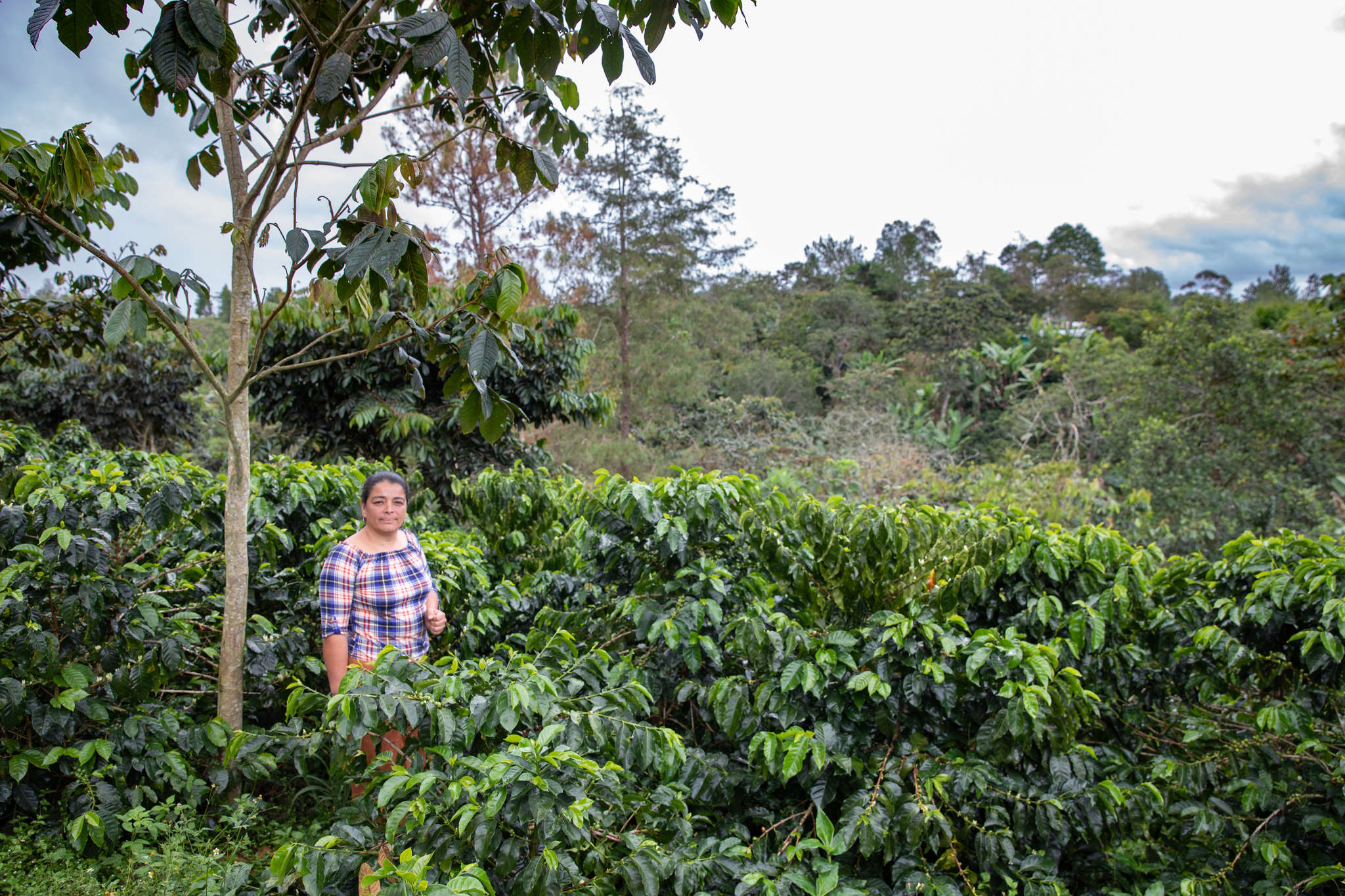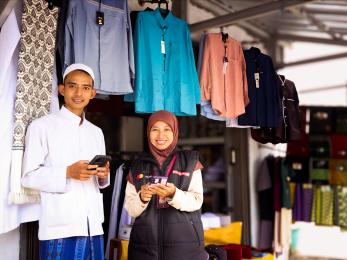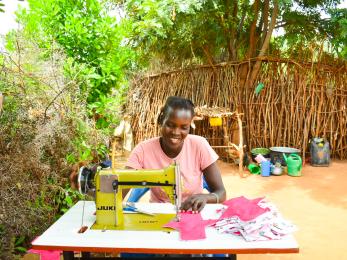Powering change: Connecting women entrepreneurs to solar energy
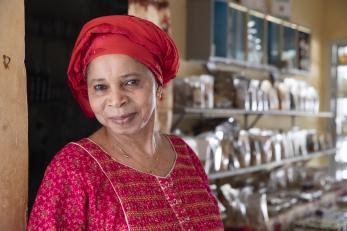
Aïssatou’s small shop is lined with shelves of local staple foods: jars of sweet mango jam, bags of flour and rice, and pouches of ground coffee and moringa tea. “I make cereals, fruit juices, jams, all kinds of products,” said Aïssatou, who runs her small business attached to her home in Mbour, Senegal.
Since her shop stocks syrups and juices, she relies on equipment like blenders, grinders, freezers, and a refrigerator to make her handcrafted goods. But rising energy costs are swallowing her profits. “We were just working out of passion, but it was no longer lucrative,” said Aïssatou. “Because all our income was going towards the electricity bill each month, especially when using the fridge or blender. It left us starting from scratch every time.”
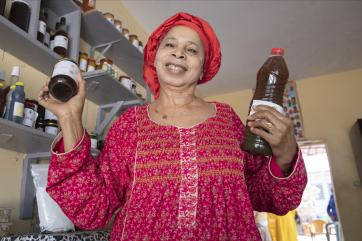
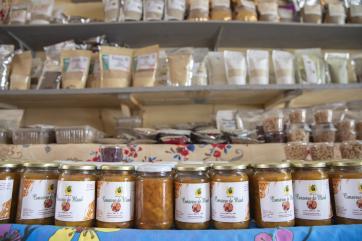
In December 2022, Mercy Corps’ Foyré Rewbé program reached out to small business owners offering access to solar energy at a discounted cost. The program helps women entrepreneurs increase their income by using more sustainable renewable energy. Its name comes from the local Fula language and translates to “woman and energy.”
Aïssatou was initially concerned about costs of connecting to the grid. But after learning about the savings from sustainable energy, she decided to sign up. Before connecting to solar power, the electricity bill to power both her business and home was the equivalent of about $500 USD for every two months. Currently, the cost to power her shop has been reduced to zero, since it operates entirely on solar energy. Her electricity bill has decreased to just $200, and covers the energy costs for her home, which is not yet connected to solar power. “Thankfully, after three months, I was very happy with the decision and wished we had made the switch to solar energy much earlier,” said Aïssatou.
The solar panels arrived at the perfect time.
Aïssatou, Shop Owner
Access to affordable energy can be transformative for communities, and solar power is often the most cost-effective and accessible resource to meet their needs. Foyré Rewbé is helping build toward a more sustainable, climate resilient, and equitable future for all. Mercy Corps collaborates with banks and energy suppliers to make solar power more affordable and accessible for women entrepreneurs, who also receive training to help them grow their businesses. Helping women entrepreneurs access renewable energy strengthens the local solar grid—increasing access for the wider community.
In 2024, the program connected nearly 550 women across northwestern Senegal—small business owners and farmers—to solar equipment. As a result, they were able to reduce costs, save more income, and produce more crops to take to market. The multifaceted approach includes training women farmers in more sustainable agricultural practices—building on top of the gains from solar energy.
Partnering with local organizations, the private sector, and state ministries, Mercy Corps is helping to set up a task force to encourage equitable energy policies so more women can take advantage of the benefits climate-smart solutions have to offer and actively participate in shaping inclusive, sustainable energy systems.
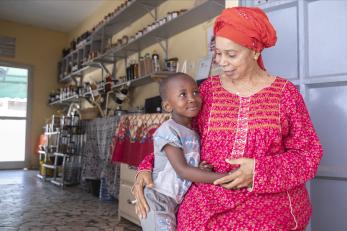
In Mbour, connecting to renewable energy came at a critical juncture for Aïssatou. “The solar panels arrived at the perfect time,” said Aïssatou. She's finally able to consistently power the freezers and keep produce fresh for longer periods of time. With the cost savings, Aïssatou has hired two full-time employees in addition to four part-time trainees she brings on staff during busy periods.
“[Previously] when raw materials arrived, they had to be processed immediately due to a lack of adequate storage,” said Aïssatou. “However, with the arrival of solar energy, I was able to fill my freezers, ensuring that I always have raw material available. Now, whenever I have trainees, I can use the stored raw materials to teach them, maintaining a consistent supply throughout the year.”
Access to affordable solar energy is powering change in Aïssatou’s community. Not only is she increasing her own income, improving access to energy is also benefitting women in her community who receive training from Aïssatou to build livelihoods of their own—now and for generations to come.
